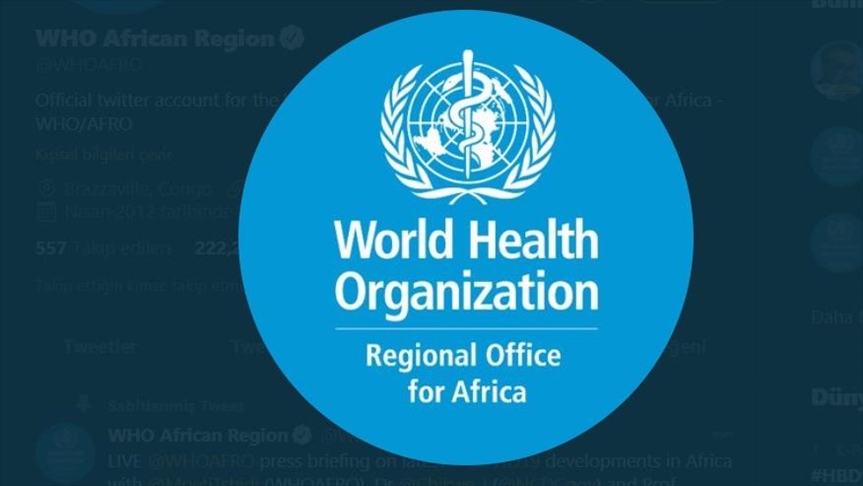By Iyemah David
The World Health Organisation Regional Office for Africa (WHO-AFRO) says investments in malaria elimination have stalled since 2012.
According to WHO-AFRO, both domestic and external investment in malaria has remained at the same levels since 2012 with real terms per capita investment in malaria declining from 2.84 dollars to 2.62 dollars per person.
Dr Matshidiso Moeti, WHO, Regional Director for Africa, disclosed at the Ministerial Forum on the Sahel Malaria Elimination Initiative on Thursday in Accra.
The meeting with theme “Strengthening the Sahel Malaria Elimination Initiative: Stock-Taking After Three Years,” afforded the eight-member nations’ representatives the platform to discuss current interventions, opportunities in integrated malaria management and the implementation of the national-level strategic plan.
Moeti, represented by Dr Elizabeth Juma, Medical Officer Tropical and Vector-Borne Disease and Multi-Country Assignment Team in Ghana, Gambia, Liberia, and Sierra Leone, said that while COVID-19 disrupted routine health service delivery it has also contributed to the increase in malaria cases and deaths.
She said low domestic funding for malaria prevention and control compounds the low per capita financing, stressing that the domestic financing as a percentage of overall investment in malaria prevention and control is estimated at 31per cent.
Moeti said limited access to health services, declined use of insecticide-treated nets from 56 per cent to 49 per cent since 2017, and the threat of insecticide resistance were compounding the challenge.
“We are also contending with the emergence of Plasmodium falciparum parasite gene deletions that render our rapid diagnostic tests incapable of detecting parasites, increasing false negative malaria tests.
“The consequence is a possible rise in severe malaria cases and deaths,” she added.
She called for intersectoral collaboration and strong leadership on health as they were critical in sustaining the fight against malaria.
The Minister of Health and Social Protection, Dr Arlindo Nascimento do Rosário, in his keynote address appreciated the technical and financial support provided by the West African Health Organisation (WAHO) and WHO AFRO to fight malaria.
Rosário said through the resolve, solidarity, investments, and inspiring efforts of malaria-endemic countries, have seen a 27 per cent reduction in malaria incidence and 49 per cent reduction in related deaths between 2000 to 2020 even accounting for the effects of the COVID-19 pandemic.
He indicated that over 27 million cases and thousands of malaria-related deaths were averted in 2021.
He also noted that the RTS, malaria vaccine has been administered in Ghana, Kenya, and Malawi, with about one million children vaccinated in these pilot countries.
He, however, stressed that about 30 per cent of the population in the Sahel are still affected by malaria hence the need for domestic fund mobilisation in a sustainable manner to effectively fight the disease.
The African Leaders Malaria Alliance (ALMA) Special Ambassador, Anthony Okara said ALMA is keen to see the ultimate goal of malaria elimination realised here in the Sahel region and around the world.
Okara said since the year 2000, working in solidarity and global partnership, ALMA has made historic progress against malaria – saving 10.6 million lives and averting 1.7 billion new malaria infections.
He said with the determination of the leadership of ALMA and commitment from its donors and development partners, the course of malaria across the Sahel region can be changed.
It was reported that health ministers from eight Sahel countries launched the Sahel Malaria Elimination Initiative to accelerate the region’s efforts to eliminate malaria, a disease that puts 90 million Sahelians at risk each year.
The ministers from Burkina Faso, Cabo Verde, Chad, Mali, Mauritania, Niger, Senegal, and The Gambia established a new regional platform to combine efforts on scaling up and sustaining universal coverage of antimalarials and mobilizing financing for elimination.
They also pledged to fast-track the introduction of innovative technologies to combat malaria and develop a sub-regional scorecard that will track progress towards the goal of eliminating malaria by 2030.
With close to 20 million annual malaria cases, the Sahel region has seen both achievements and setbacks in the fight against the disease in recent years.
Burkina Faso and Niger continue to be among the countries with high malaria burdens, whereas Senegal and The Gambia have made steady progress in reducing malaria cases and deaths. The island nation of Cabo Verde, which also joins the initiative, is on track to eliminate the disease by 2020.




